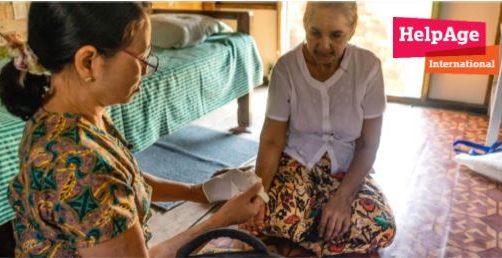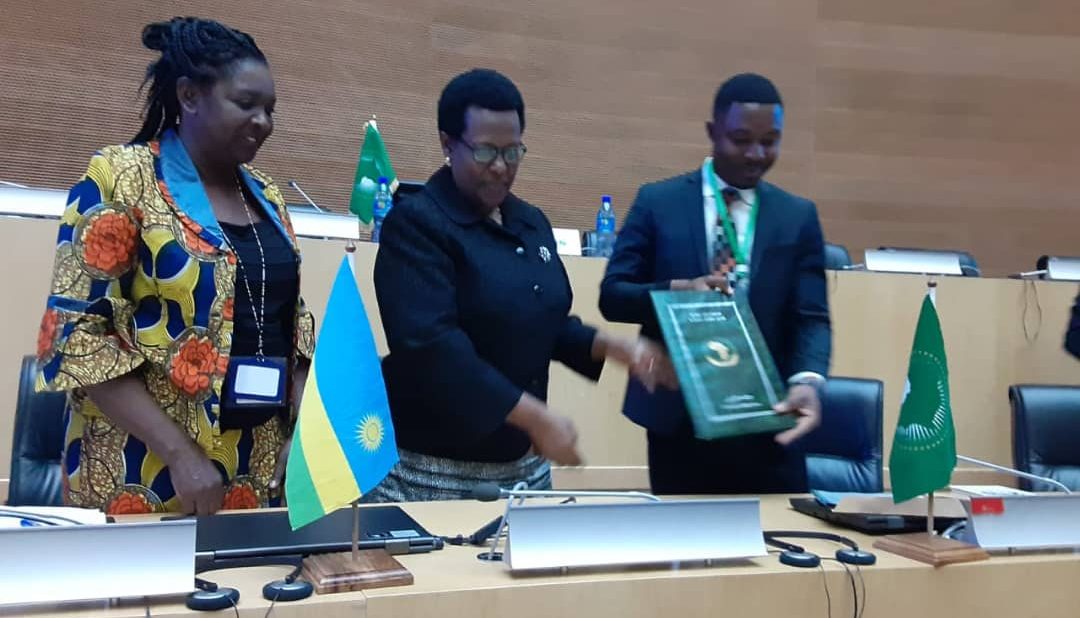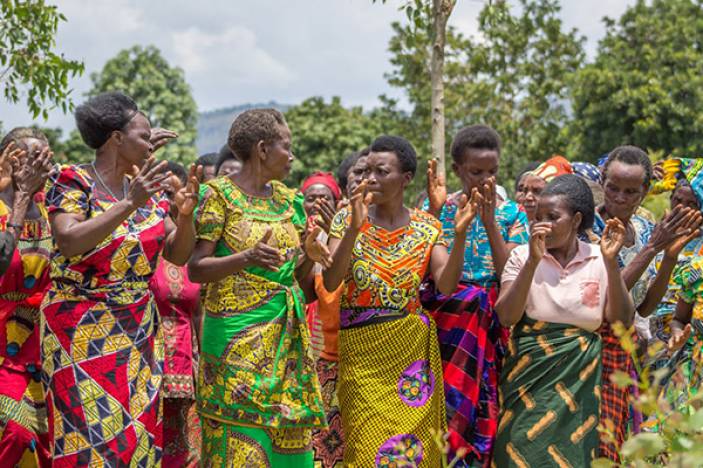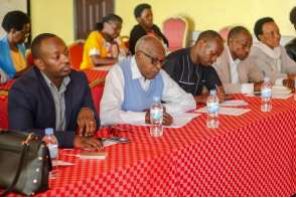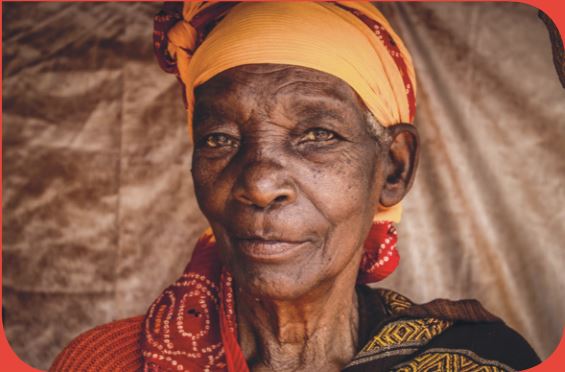This document provides guidance and advice for older people about COVID-19. It gives some basic information on what Covid-19 is and how it is spread, followed by key advice on what older people can do to reduce their risk of catching the virus, and what they should do if they need medical help or support.
What is COVID-19?
• COVID-19 or ‘coronavirus’ is a new disease that emerged in 2019 • COVID-19 was first seen in China but is now spreading all over the world, with cases in well over 100 countries by mid-March 2020 • COVID-19 causes respiratory infection • The most common symptoms of COVID-19 are fever, a dry cough and shortage of breath. Some people may have aches and pains, a runny nose, sore throat or diarrhoea • Some people become infected but don’t develop any symptoms and don’t feel unwell • Most people (about 80%) recover from COVID-19 without needing special treatment • Around 1 in 6 people will become more seriously unwell and will develop difficulty breathing • Older people, and those with underlying health problems like high blood pressure, heart problems or diabetes, are more likely to become seriously unwell with COVID-19, and are more likely to die • People with fever, cough and difficulty breathing should seek medical help
COVID-19: Guidance and advice for older people
2
Published by HelpAge International in March 2020 PO Box 70156, London WC1A 9GB www.helpage.org Registered charity no. 288180
How is COVID-19 spread?
• People can catch COVID-19 from others who have the virus • The disease can spread from person to person through small droplets from the nose or mouth. These are spread when a person with the virus coughs or sneezes • People can catch COVID-19 if: 1. Someone with the virus coughs or sneezes and droplets land on objects and surfaces. If other people touch those surfaces and then touch their mouth, nose or eyes, they can become infected 2. Someone with the virus coughs or sneezes on to another person who breathes in the droplets 3. Someone with the virus coughs or sneezes into their hand and then touches another person on the face, or touches another person’s hand, and then they touch their mouth, nose or eyes
How can I protect myself?
There are some basic things everyone can do to reduce their risk of catching COVID-19:
• Regularly and thoroughly wash your hands with soap and water. You should wash your hands for at least 20 seconds, including the palms and backs of your hands, between your fingers, your fingers, fingertips and your nails • While washing your hands with soap and water is preferable, if you are out, or do not have access to soap and water, use alcohol-based hand rub to clean your hands. This must also be done for at least 20 seconds with enough rub for your hands to stay wet for the whole 20 seconds • Avoid touching your eyes, nose and mouth, particularly if you have not washed your hands • Make sure you cough or sneeze into a tissue. Throw the tissue away immediately. If you do not have a tissue, cough or sneeze into your elbow. Then, immediately wash your hands thoroughly • Stay at least 2 metres (6 feet) away from anyone who is coughing or sneezing • Stay at home or away from other people if you feel unwell with a fever, cough or shortness of breath • Try to find information about places that are affected by COVID-19 and avoid going to those places • Consider avoiding large groups or gatherings of people, for example social events, community meetings and cultural activities
3
Published by HelpAge International in March 2020 PO Box 70156, London WC1A 9GB www.helpage.org Registered charity no. 288180
• Try to avoid shaking hands or hugging other people • Only wear a mask if you are ill or if you are looking after someone who is ill. Masks are not very useful in stopping you from becoming infected. There is now a worldwide shortage of masks so only use a mask in these circumstances • If you do use a mask, wash your hands before putting it on, after touching the mask while you are wearing it, and after taking the mask off and throwing it away. • Single use masks should only be worn once, and multiple masks should not be worn at the same time. Masks should be taken off and replaced as soon as they are damp
How can I manage my health?
• Older people and those with other health conditions, particularly hypertension, diabetes and heart disease, are more likely to become more seriously ill with COVID-19. It is important that you take care of your general health, including any specific conditions you already have • If you have any existing conditions, it is particularly important to do everything you can to reduce your risk of getting COVID-19, for example, washing your hands, avoiding large gatherings of people, and staying away from anyone who is ill
Medication
o It is important that even if you are unwell, you continue to take any other medication you have been given by a doctor for other illnesses or health issues o Make sure you have enough of your medicines, and if you are unwell ask a friend, family member or carer to collect medicines for you
Diabetes
o People with diabetes are at increased risk. If you have diabetes, continue to take any medication, monitor your blood sugar closely and seek medical help if you have a fever, cough or shortness of breath
Asthma
o People with asthma should continue to use their inhaler(s) as usual o If you think your asthma is getting worse or you have a fever, cough or shortness of breath, seek medical help
4
Published by HelpAge International in March 2020 PO Box 70156, London WC1A 9GB www.helpage.org Registered charity no. 288180
Cancer
o People with cancer are at increased risk, particularly cancers that affect the immune system, and people who are undergoing treatment, including chemotherapy o If you have cancer it is important you take the steps described to reduce your risk of getting COVID-19. If you feel unwell with a fever, cough or shortness of breath, seek medical help
What if I need help or support from others?
• If you need to stay at home, or you are homebound, ask friends, family or carers for support. Both you and those helping you should do what you can to protect yourselves, as outlined above, including washing your hands. • Ask friends, family or carers for help with: 1. Picking up medicines 2. Buying food 3. Tasks around the house 4. Getting information on COVID-19 5. Getting information on where and how to get medical help 6. Getting to a health facility • Make sure friends, family or carers know if you are feeling unwell • Ask friends, family or carers not to visit if you are feeling unwell, particularly with a fever, cough or shortness of breath, until you have got some medical advice, unless you need their help urgently • Ask friends, family or carers not to visit you if they feel unwell, particularly with a fever, cough or shortness of breath
Where can I go for medical help?
• There is currently no vaccine or medicine to cure COVID-19 • Medical help can be provided to help with the symptoms of COVID-19 if you become unwell. Most people who catch COVID-19 will recover with medical support • If you feel unwell, do not panic or hide your condition. Seek medical help • If you become seriously unwell with COVID-19 you will need hospital treatment • Make sure you, and your family, friends or carers, know where to go for medical help or advice if you feel unwell with a fever, cough or shortness of breath. The most appropriate place to go for help will depend on where you live and the facilities available. Your local
5
Published by HelpAge International in March 2020 PO Box 70156, London WC1A 9GB www.helpage.org Registered charity no. 288180
advice may not be to go immediately to your nearest health facility. Try to find this information in advance so you are prepared and know what to do, should you feel unwell
Please remember: COVID-19 is a serious illness, but there are things we can all do to protect ourselves and others. Taking sensible precautions is important but there is no need to panic
Find out more: Helpage.org/coronavirus-COVID1
